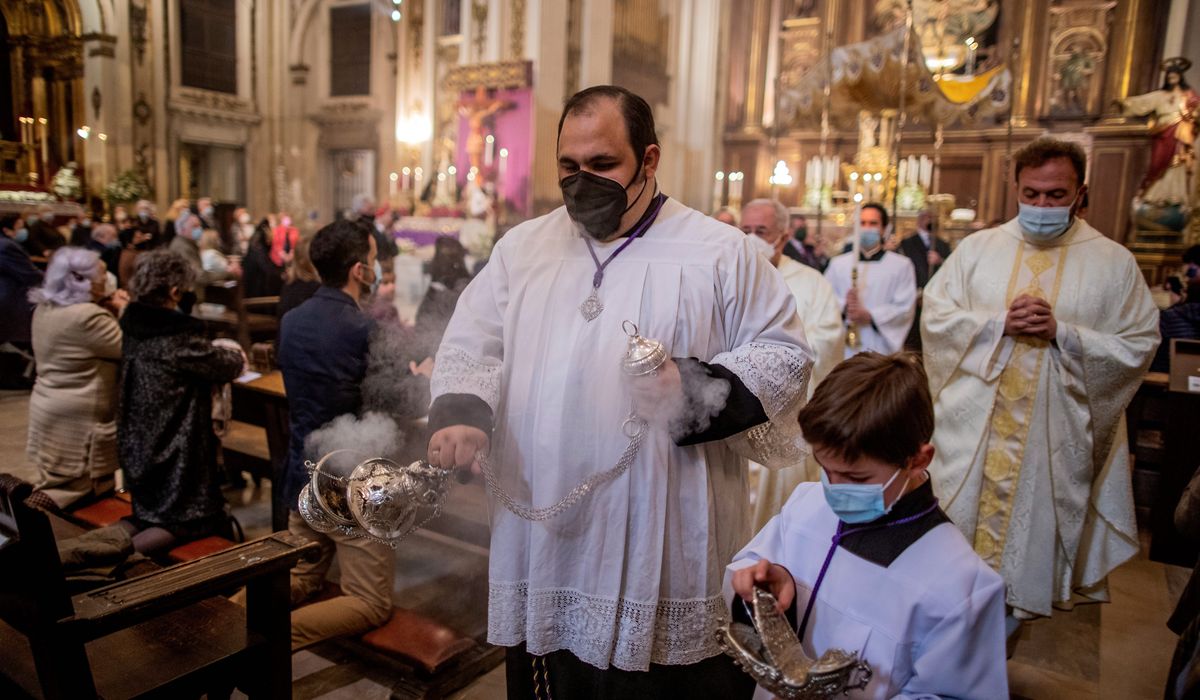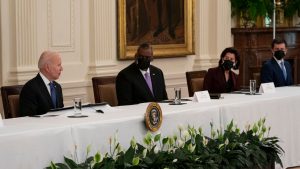Easter sunrise will find America’s churches far more open than they were a year ago as COVID-19 — and local officials — shut doors and sent pastors and priests to the internet to minister to their flocks.
But it’s been a tough year for some congregations, and at times federal judges have stepped in to order that doors to be opened, overriding officials whom the judges accused of showing more leniency toward bars and gymnasiums than toward houses of worship.
In Washington, the nation’s largest Catholic church, the Basilica of the National Shrine of the Immaculate Conception, will have 1,000 parishioners per Mass this Sunday, and the city’s other Catholic churches can operate at 40% capacity. But that came only after the Washington Archdiocese won a judicial reprieve from D.C. Mayor Muriel Bowser’s severe shutdown order, which limited churches to 25% capacity.
The archdiocese at one point had argued that under the mayor’s policy, it would have been allowed more people if it had taken out the pews, replaced them with treadmills and declared the church a gym.
Judge Trevor McFadden agreed, ruling that the city was more lenient toward other potential risky behavior amid the pandemic, and churches — protected under the First Amendment — deserved at least as much deference.
In California, some enterprising pastors declared their churches strip joints in order to open up during this winter’s coronavirus resurgence, after a superior court judge in San Diego ordered the state to allow strip clubs to open, even as churches were still on official lockdown.
And even as late as Thursday, the South Bay United Pentecostal Church in Chula Vista was battling in the courts to expand capacity for Easter Sunday, arguing Gov. Gavin Newsom’s shutdown orders still go too far.
“California, unlike the rest of the United States of America, remains a defiant island of tyranny, continuing to discriminate against the use of premises based solely on whether that use is religious,” the church’s lawyers argued in briefs before the 9th U.S. Circuit Court of Appeals.
In Nevada, casinos were treated better than churches, said the Alliance Defending Freedom, which counts 17 successful battles for religious freedom against COVID-19 restrictions over the last year.
“We are hopeful that government officials will renew their commitment to the First Amendment and uphold our most cherished freedoms, even during times like these,” said Ryan Tucker, director of the Center for Christian Ministries at ADF.
Many states have lifted all worship-specific COVID-19 policies, leaving churches to follow the same social distancing and capacity limits as any other organization, but there are some holdouts.
D.C. officials say churchgoers have tested positive for the virus, and that’s enough of a risk to impose strict limits.
The Catholic archdiocese in Washington said no outbreak has been tied to any of the thousands of Masses that have been held — under capacity limits, social distancing and cleansing routines — since in-person worship resumed last summer.
In California, lawyers for the governor said there have been “numerous more recent examples of outbreaks tied to worship services even where precautions such as masks, distancing, and increased sanitization were imposed.”
Alex Luchenitser, associate vice president and associate legal director at Americans United for Separation of Church and State, said that courts had been more deferential to local officials in the early days of the pandemic but that changed about the time Justice Ruth Bader Ginsburg died and Justice Amy Coney Barrett was confirmed to fill her seat.
In a key ruling just before Thanksgiving last year the Supreme Court held that New York Gov. Andrew Cuomo’s restrictions on churches went too far, sending jurisdictions across the country scrambling to rewrite their policies to comply with the new standard.
The cases turn on issues such as whether churches should be compared to services such as grocery stores, or whether they’re akin to movie theaters. In California, the state and church are arguing over fire codes and occupant loads.
Americans United has filed 49 briefs in cases involving COVID-19 and churches challenging local restrictions, including in the case pending in the federal appeals court this week.
“We sympathize with faith communities that yearn to come together for worship and it’s certainly been a long time, but the more we heed the advice of public health experts now the sooner the virus will be under control and the sooner houses of worship will be able to resume regular services,” Mr. Luchenitser said. “Religious freedom is a precious right but it should never be used to harm other people.”



















